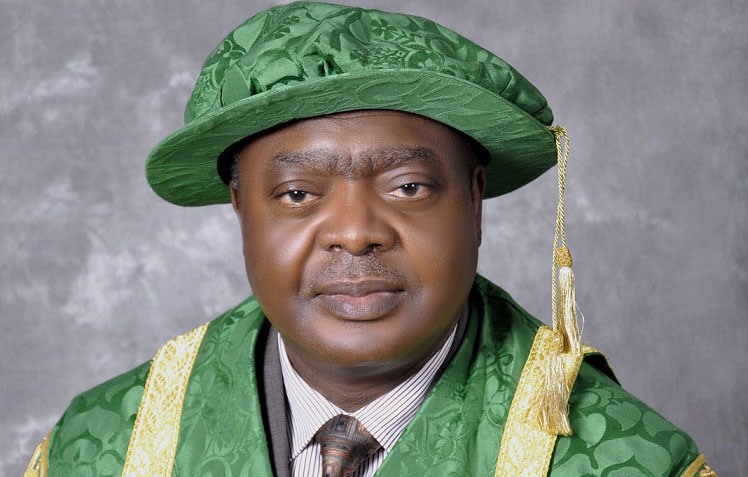Universities depending on subventions can’t survive, says ex-VC, UNN
March 28, 20221.5K views0 comments
Bartho Okolo, professor and a former vice chancellor of the University of Nigeria, Nsukka, says the culture of donating towards education is natural with Nigerians.
He said this when presented a paper, ‘Restructuring the Emerging Landscape for Resource Mobilisation in Nigerian Higher Education’, at the third edition of the Jacksonites Professional Development Series (JPDS) seminar, an initiative of the alumni association of the Mass Communication Department, University of Nigeria, Nsukka tagged, ‘Fundraising Campaign for Higher Institutions in Nigeria.’
“The Nigerian people like to donate; they like to commit to things that will impact humanity; they also will want to see their resources not misappropriated, misapplied or wasted completely,” Okolo said.
As deputy vice chancellor and chancellor respectively, he said he raised about N14 billion, noting that, “If in a country you can get this volume of resources donated, then the country is very much donation friendly. All we need to do is to develop proper strategy and relationships to be able to encourage the people who have the resources and who want to donate but are afraid that their money will be misappropriated.”

Hard economic times has made it difficult for universities to rely on government allocation and subventions to fund universities, he said, adding, “any university that does not embrace fundraising is not likely to survive.”
In addition to constituting a fundraising team, creating a diary of donors, and forming strong corporate partnerships, the former vice chancellor suggested that a robust reward mechanism should be designed to appeal to different target donors. “These donors will require rewards as incentives to commit their resources. [It’s] either you find out what their passion is, whether they would like to have the project named after them, have their name in a hall of fame or publicly announced. You need to find out the reward mechanism that will appeal to each donor.”
Also presenting, Charles Okigbo, Emeritus Professor of Strategic Communication at North Dakota State University, said that what makes for the success of a capital campaign is strategic communication.
Okigbo, the pioneer registrar of APCON, presenting on the subject, ‘Fundraising and Capital Campaigns as Strategic Communication’, “It’s not fundraising unless it is strategic. Fundraising is not something we engage in by accident.” According to him, fundraising is a deliberate activity that requires one to have a plan that details the target amount to raise, the major donors, how to get them to donate as well as to measure progress.
Okigbo further suggested that to succeed in any capital fundraising campaign, an organisation must be clear about its mission, carry out feasibility research, develop a strategic plan, research on the prospective donors, build a team, define a timeline for a fundraising campaign and execute with dexterity.
He further pointed out flaws in typical fundraising campaigns in Nigeria which include: no distinction between the silence and public phase, disregard for Pareto principle and gift range chart in the identification of donors, poor stewardship, and recycling of traditional money bags.
John Klocke, another speaker at the seminar, introduced an interesting perspective of the overall theme of fundraising with the presentation caption, ‘Fundraising is NOT asking for Money’. Drawing from his over 30 years experience in fundraising in healthcare, social science, and higher education, he said that when it comes to relating with donors, “we need to be communicating with them a great deal before we ask them for funds. Donors are expecting some personal relationship-building communication that is not about asking them for money but is about thanking them and showing them the impact of their gift.”
Klocke suggested that well-written notes, annual impact reports, periodic newsletters, personal visits, stewardship events for donors are non-ask communication that should be cultivated and sustained with donors. In his view, it’s the non-ask communication that builds the relationship to make donations flow easily. “Do not ask for a gift until you have thanked the donors at least two times and have communicated the impact of their gift so that they are satisfied with the gift.”
He further stated that before one embarks on a fundraising campaign, one should be abreast of the statistics about an organisation/project to formulate a plan and allocate fundraising resources judiciously.
In his presentation in partnership with Betsy Birmigham of Lakehead University, Thunder Bay, Canada, and Kelly Sassi of North Dakota State University, USA, Charles Okigbo stated that everything about fundraising is about people, ranging from the advisory board that conceptualises and runs the campaign to the media that will tell their story. “It will be impossible to succeed in capital fundraising if you don’t have a board of advisors. You are not God; you don’t know it all. Ideally [it should be] a pull of men, women, professionals, teachers, students, alumni, donors.” he said.
